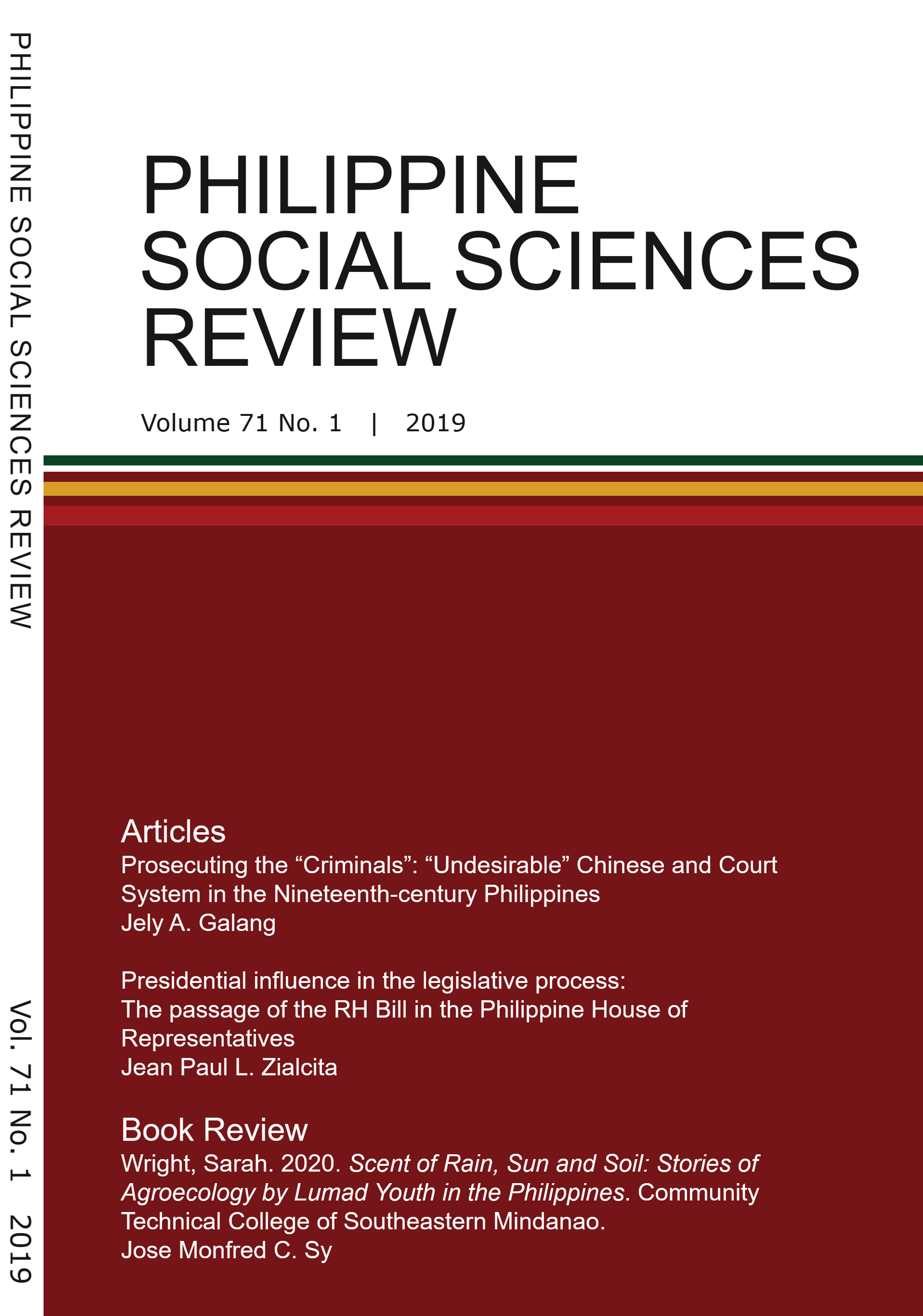Presidential influence in the legislative process: The passage of the RH Bill in the Philippine House of Representatives
Abstract
After more than a decade since a bill proposing the enactment of a law on reproductive health was laid before the Philippine House of Representatives, the Responsible Parenthood and Reproductive Health Act of 2012, more popularly known as the RH Law, was signed by President Benigno Aquino III on the 21st of December 2012. Although similar in form and content to the bill that was passed, previous versions of the RH bill did not receive the necessary votes in the House, despite the vigorous campaign waged by their proponents. This article argues that presidential influence in the legislative process in favor of reproductive health—something that was lacking in past Congresses—was a critical factor that contributed to the successful passage of the RH bill. It enumerates the various stages at which the chief executive in a presidential system of government can influence the legislative process to get his or her preferred legislative measures passed, and presents the various means employed by President Aquino to get the House to pass the RH bill.
Published
2021-11-15
How to Cite
ZIALCITA, Jean Paul L..
Presidential influence in the legislative process: The passage of the RH Bill in the Philippine House of Representatives.
Philippine Social Sciences Review, [S.l.], nov. 2021.
ISSN 2672-3158.
Available at: <https://journals.upd.edu.ph/index.php/pssr/article/view/8405>. Date accessed: 01 oct. 2025.
Section
Articles


